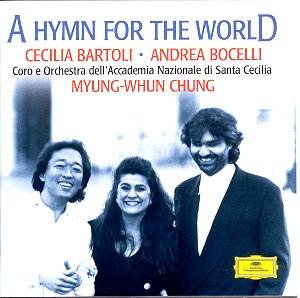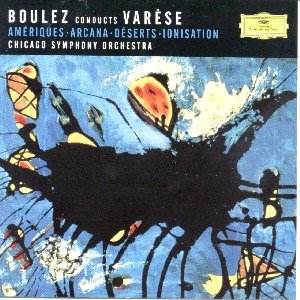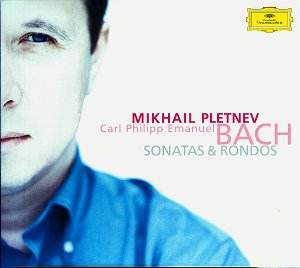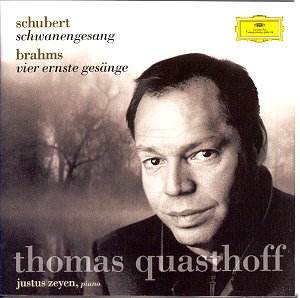 Performers: Cecilia Bartoli, mezzo-soprano (2), (6), (13); Andrea Bocelli, tenor (12); Augusto Loppi, oboe (2); Luigi Piovano, cello (2), (13); Cinzia Maurizio, harp (13); Daniele Rossi, organ (1)-(8), (13)-(15); Coro e Orchestra dell’Accademia Nazionale di Santa Cecilia / Myung-Whun Chung, Chorus Master: Norbert Balatsch
Performers: Cecilia Bartoli, mezzo-soprano (2), (6), (13); Andrea Bocelli, tenor (12); Augusto Loppi, oboe (2); Luigi Piovano, cello (2), (13); Cinzia Maurizio, harp (13); Daniele Rossi, organ (1)-(8), (13)-(15); Coro e Orchestra dell’Accademia Nazionale di Santa Cecilia / Myung-Whun Chung, Chorus Master: Norbert Balatsch
Recording: Roma, Auditorio di Via Della Conciliazione, 5/1997 (2),(6), (13) & 6/1997 (DDD)
Label: DEUTSCHE GRAMMOPHON 457 355-2
Duration: [58.45]
In a solemn yet celebratory tribute, A Hymn for the World compiles a selection of sacred works that traverse the rich landscape of Western classical music, invoking a sense of reverence and beauty. The disc, dedicated to Pope John Paul II and the composers who have enriched our cultural and spiritual lives, is a poignant reminder of the power of music to transcend borders and touch the human soul.
From the outset, Myung-Whun Chung’s interpretation of Vivaldi’s Gloria in excelsis Deo, followed by the equally vibrant Domine Deus, Rex caelestis, sets a robust foundation for the collection. The conductor’s brisk tempos channel Vivaldi’s vivacious spirit, though one might argue that the pace occasionally compromises the clarity of choral enunciation—a point that becomes particularly evident in the exuberant Hallelujah Chorus from Handel’s Messiah. Here, the sheer velocity seems to overshadow the text, leaving the listener craving the familiar textual clarity that this masterwork demands.
As we progress to Bach’s Jesu, Joy of Man’s Desiring, the tempo is judiciously moderated, allowing the lushness of the orchestral and choral textures to emerge, revealing the intrinsic beauty of the melody. This transition underscores the disc’s historical context—Bach’s music, steeped in Lutheran liturgy, provides a spiritual anchor that resonates deeply within the sacred canon.
Mozart’s contributions are equally compelling; the Ave verum corpus is delivered with an exquisite delicacy that highlights the lyrical nature of the piece. Bartoli’s entrance in Alleluia is a marvel of coloratura precision, her runs executed with a clarity that has become her hallmark. However, the occasional intrusion of her breath intakes, while minor, serves as a reminder of the live recording’s imperfections. In contrast, the Ave verum corpus by Liszt, although often overshadowed by Mozart’s, is rendered with a haunting beauty, showcasing the choral ensemble’s nuanced control and emotional depth.
The juxtaposition of Verdi’s Sanctus—described by Hans von Bülow as an “opera in ecclesiastical dress”—with Rossini’s Amen from Stabat Mater highlights the dramatic potential inherent in liturgical music. The former’s grandeur and the latter’s lyricism reflect on the evolution of sacred music in the Romantic era, bridging the gap between the sacred and the theatrical.
Gounod’s Marche Pontificale feels somewhat misplaced within this collection; given the wealth of Gounod’s sacred output, one might have preferred a more substantial choral work. However, the recording regains its footing with Bizet’s Agnus Dei, featuring Andrea Bocelli. His voice, rich and expressive, brings forth an operatic intensity that is both fitting and moving, though one might wish for greater nuance in his interpretation.
Fauré’s In Paradisum offers an ethereal quality, skillfully capturing the essence of the Requiem’s themes of peace and hope, while Messiaen’s O sacrum convivium invites contemplation through its mystical harmonies and textures. The engineering in these latter tracks deserves particular note, as the spatial placement of the chorus and organ creates an enveloping soundscape that enhances the listening experience.
The concluding piece, the Rite of Peace by Pope John Paul II, serves not only as an affirmation of the disc’s dedication but also as a universal message of harmony and goodwill—one that resonates with listeners of all faiths and beliefs. This poignant closure encapsulates the album’s essence, a celebration of sacred music as a vehicle for understanding and connection.
In summary, A Hymn for the World stands as a commendable compilation that navigates the sacred repertoire with sensitivity and skill. While certain interpretive choices may invite discussion, the overall execution showcases the enduring power and beauty of these works. The recording serves both as an introduction to sacred music for the uninitiated and a reaffirmation of its significance for devoted listeners—a disc to cherish and reflect upon in equal measure.


